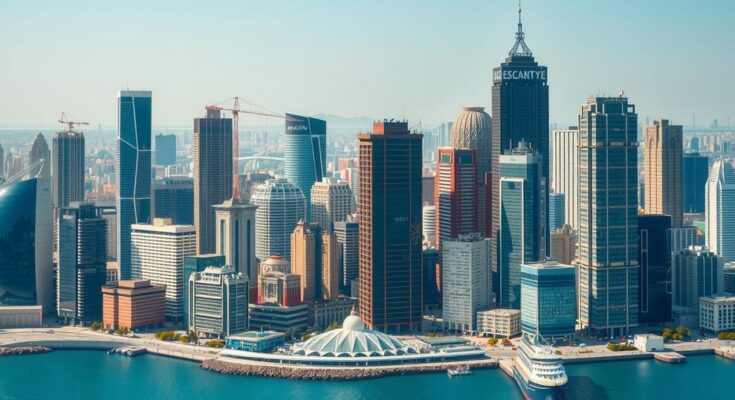Lagos, Nigeria, is experiencing a severe housing affordability crisis, driven by economic instability and inflation, resulting in rent hikes across the city. The gap between luxury housing and affordable options has widened, forcing lower-income residents into inadequate living conditions. As urbanization intensifies, the government faces increased pressure to implement effective housing policies to address these challenges and ensure access to stable housing for all residents.
The economic crisis in Nigeria is exacerbating the housing affordability issue in Lagos, where soaring inflation has propelled rent prices, rendering stable housing elusive for many residents. As the country’s economic hub with over 20 million occupants, Lagos has long grappled with a lack of affordable housing, and recent economic changes have aggravated this situation.
Recent reforms, including the decision to float the naira and abolish the gasoline subsidy, have intensified pressures on the housing market. Consequently, rent prices in Lagos have escalated significantly, impacting not only affluent neighborhoods but also lower-cost districts. Other cities in Nigeria, such as Abuja and Port Harcourt, are experiencing similar trends, with rent increasing by up to 40 percent due to inflation and a shortage of housing options, pushing many middle- and low-income individuals into substandard accommodations.
The disparity between the luxury housing market and the needs of average residents in Lagos is increasingly apparent. While high-end developments attract foreign workers and wealthy locals, the majority of Lagosians find themselves unable to afford suitable housing. Many landlords face financial burdens due to dollar-denominated loans, which contribute to rising rental costs.
Besides the steep cost of living, inadequate infrastructure compounds the housing problems in Lagos. Traffic congestion adds substantial time to commutes for individuals seeking affordable housing further from the city center. Although the government is pursuing infrastructure improvements, such as new train lines and the Lagos-Abeokuta railway, these initiatives are insufficient to meet the pressing housing demands of the city.
The escalating housing crisis intensifies the responsibility on the government to tackle Nigeria’s housing shortfall. With Lagos’s population on the rise, prioritizing affordable housing initiatives has become critical to maintaining livability for all citizens.
The situation in Lagos mirrors a widespread pattern seen across many African urban centers, where rapid urbanisation outpaces the supply of affordable housing. Cities such as Nairobi and Accra are similarly affected, highlighting the urgent need for substantial policy reforms and investments in affordable housing to secure stable homes for millions.
In summary, the housing affordability crisis in Lagos, exacerbated by economic turmoil and inadequate infrastructure, poses a significant challenge for its residents. The stark contrast between luxury developments and the limited availability of affordable housing necessitates urgent government action to address the growing demand. This crisis is not unique to Lagos, as many African cities face similar struggles, underscoring the need for comprehensive policies to ensure housing stability across the continent.
Original Source: www.rprealtyplus.com




